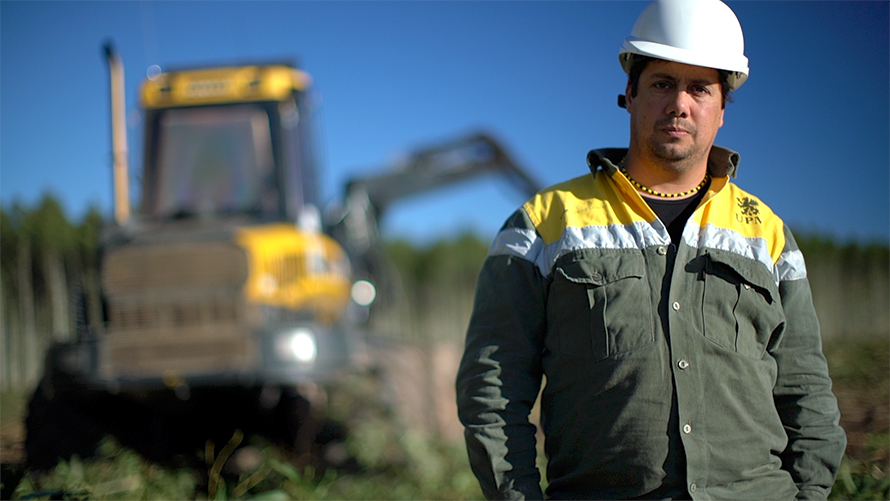At the forestry and wood sourcing sites, the working conditions are relatively different when compared to UPM´s production sites, sales offices and terminals. For example, there are more than 40 people living and working on UPM’s premises on plantations in Uruguay. The field workers and their families receive their household water from water wells, which highlights the importance of safe drinking water, proper sanitation and good hygiene.
“By regular monitoring, we ensure that the water wells are in good condition and that the water is suitable for human consumption. The forest rangers check that the maintenance of the wells is done once a month and they keep a record of it in the Management Monitoring System. In the system, they can also enter observations and proposals for improvements”, describes Ivan Grela, Environmental Affairs Coordinator at UPM Forestal Oriental.
Grela confirms that there is a clear normative hierarchy that guides water monitoring, hygiene control and sanitary issues on the forestry sites.
“First, we have our own internal policies that we must follow alongside the requirements of the WASH programme. Then there are the FSC® obligations that not only encompass the productive procedures of forestry but also audit the working conditions of UPM and the employees of contracted companies”.
Finally, the Uruguayan law sets out a solid legal framework that all businesses have to follow. “The legislation requires a certain amount of toilets and bathrooms per person at the company premises. The employer is also obliged to provide hot water and cooking facilities with easily washable surfaces for employees”, he describes.
Grela adds that UPM fulfils all requirements set by the legislation, but that external contractors have also been improving their performance in recent years.
“Most field workers are employed by UPM’s subcontractors, so we have to ensure that they are offering these services for their employees as well. Subcontractors know that they have to meet these requirements in order to continue working for UPM”.

Room for improvement
In the WASH survey, Uruguay is characterised as a country that has good access to safe water, sanitation and hygiene.
“According to the study there were no significant differences between forestry and wood sourcing sites in Finland, Estonia, Russia and Uruguay. However, I think that the most important goal of the WASH Pledge is to organise campaigns to build awareness and promote behavioural changes”, Grela says.
In Uruguay, the survey identified some areas in which UPM had improved after the results were published.
“Regarding hygiene training and increasing awareness, we included some specific instructions in the operational standards that are mandatory for both our own employees and for contracted employees. Then, we emphasised the importance of handling chemical products with special care. We are assessing compliance with the standards regularly and, when needed, we place appropriate hygiene and sanitation guidance in toilets, washrooms and special risk areas in the workplace”.
The third development area for UPM is the training to be organised for the cleaning and maintenance staff.
“UPM as an employer has to ensure that internal and external employees whose work relates to cleaning and maintenance tasks are trained to use the required techniques and standards. They must know how to use materials and products properly and how to follow the special instructions given”.
Grela confirms that good hygiene and sanitation are already very well incorporated into Uruguayan culture. “We have learnt these things at home and at school. The authorities also organise local and national health and hygiene campaigns in case there is a risk of a wider epidemic, for example”.
“In any case, we have improved a lot in our safety and working conditions as well as in issues related to water, hygiene and sanitation since forestry operations were started here in Uruguay in 1987. Nowadays, all aspects of WASH are controlled and they are at a very high standard”, concludes Grela.
Vesa Puoskari
